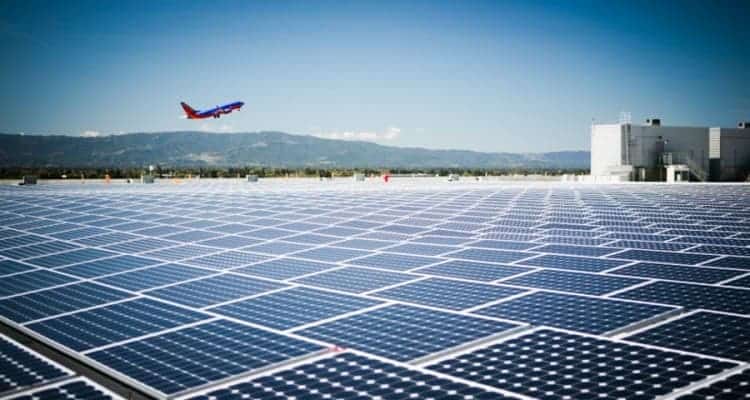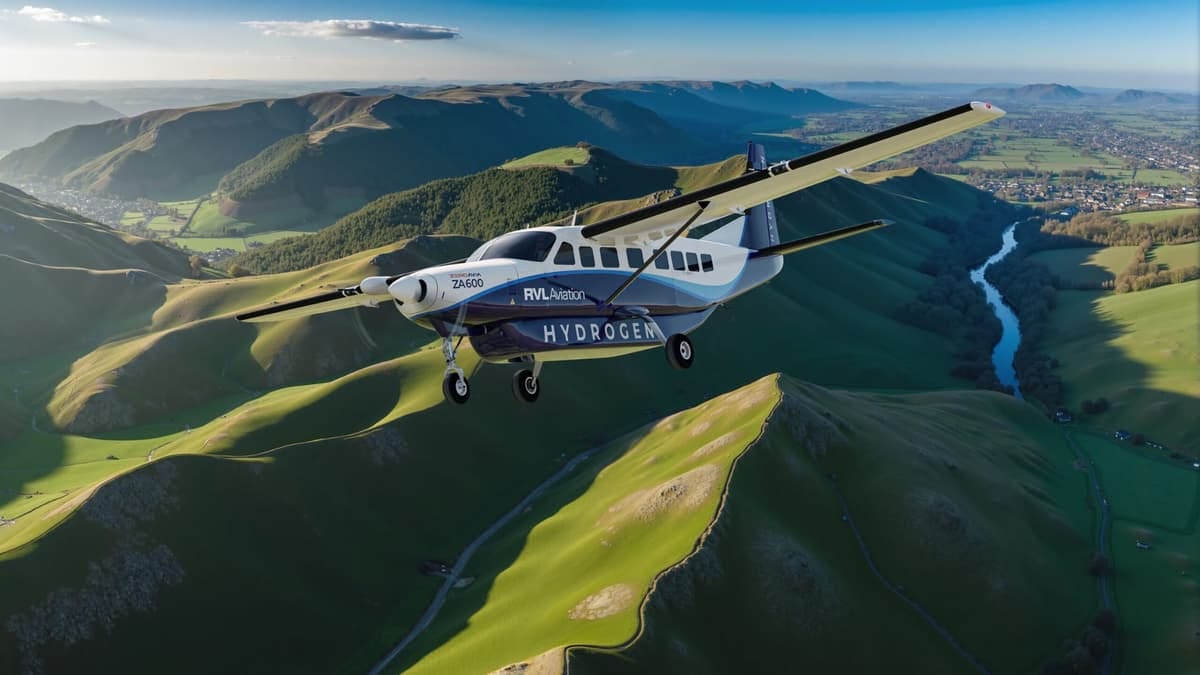#Sustainability20: World's first hydrogen-electric jet-powered cargo flights set to launch in UK & more
Weekly Roundup - 16/05/25
Each Friday, we publish a round-up of the 20 most important stories on sustainable aviation. You can see previous editions of #Sustainability20 here.
Industry updates
Lufthansa has committed to halving emissions by 2030 and achieving carbon neutrality by 2050, focusing on fleet renewal, SAF adoption, and measurable climate targets to lead aviation’s green transition.
Bangkok Airways and PTT Oil and Retail Business have signed an agreement to use domestically produced SAF, marking Thailand’s first such initiative to cut aviation emissions and support national sustainability goals.
The UK is finalising a revenue certainty mechanism to boost SAF production, aiming to de-risk investments while ensuring affordability, with a mandate for 10% SAF use by 2030.
CLIMATE WATCH: Global recycling rates have fallen for eighth year running, report finds - The Guardian
Global recycling rates have dropped to 6.9% as consumption outpaces recycling efforts, with researchers warning that even perfect recycling would only cover 25% of waste, demanding reduced consumption.
Infrastructure and operational efficiencies
Airports worldwide are adopting solar power as standard, with India leading the charge – 44 airports now run on 100% renewable energy, cutting emissions and costs while supporting local economies.
Denver Airport’s Zero Waste Valet Programme has diverted 260 tonnes of compost from landfills since 2024, partnering with restaurants to improve waste sorting and reduce environmental impact.
Sustainable Aviation Fuel (SAF)
Brazil has secured a $1 billion Chinese investment to produce SAF from sugarcane, alongside renewable energy collaborations, as President Lula da Silva strengthens ties with China.
The SAFc Registry and Chooose have integrated their platforms to streamline SAF certificate transactions, with Alaska Airlines as the first adopter, enhancing transparency and accessibility in SAF markets.
Singapore Airlines has purchased 1,000 tonnes of SAF from Neste and 2,000 tonnes of SAF credits from World Energy, supporting ICAO’s CORSIA emissions reduction targets.
The WTTC urges the travel industry to accelerate SAF adoption, warning that current production meets just 0.3% of demand and requires 6,500 new plants to hit 2050 net-zero goals.
SABA has launched a first-of-its-kind RFP to boost SAF production using advanced feedstocks. The goal is to secure long-term offtake deals to help plants reach FID and scale by 2030, backed by corporate demand via book & claim.
LanzaJet and BioD are assessing Colombia’s first SAF plant using ethanol-to-jet technology, aiming for production by 2029 to support Latin America’s decarbonisation and energy transition goals.
Alder Renewables and Bioénergie AE Côte-Nord will produce SAF from sawmill waste in Québec by 2027, cutting emissions by 80% and aligning with Canada’s 2030 SAF targets.
The UK has introduced a £400,000 fund to accelerate SAF development, alongside a revenue certainty mechanism to stabilise prices, targeting 10% SAF use by 2030.
A coalition including Amazon, Netflix, and Boeing is boosting next-gen SAF production via SABA’s RFP, focusing on scalable feedstocks like agricultural waste to meet long-term decarbonisation needs.
New technology: Electric and Hydrogen
ZeroAvia and RVL Aviation will launch the UK’s first hydrogen-electric cargo flights using retrofitted Cessna Grand Caravans, pending regulatory approval, marking a milestone in zero-emission aviation.
Vertical Aerospace is developing a hybrid-electric VTOL with a 1,000-mile range, expanding beyond its all-electric VX4 to target defence and logistics markets, with testing starting in 2026.
Archer Aviation will provide eVTOL air taxi services for the 2028 LA Olympics, building on its planned 2026 launch of urban air mobility networks in Los Angeles and NYC.
AeroDelft has successfully tested a liquid hydrogen-powered electric aircraft propulsion system, overcoming cryogenic and safety challenges in a student-led breakthrough for sustainable aviation.
XTI Aerospace and VerdeGo Aero will collaborate on hybrid-electric propulsion for VTOL aircraft, enhancing performance and sustainability in military and civilian unmanned systems.
Evia Aero has ordered six hydrogen-electric Beech 1900D aircraft from Stralis, with options for 10 more, supporting its plan for zero-emission regional flights across Europe from 2030.







